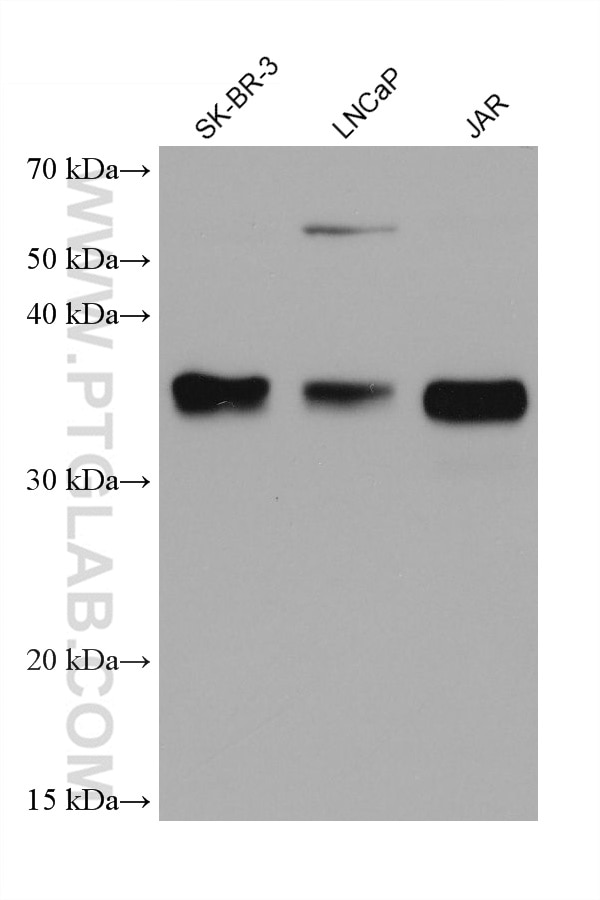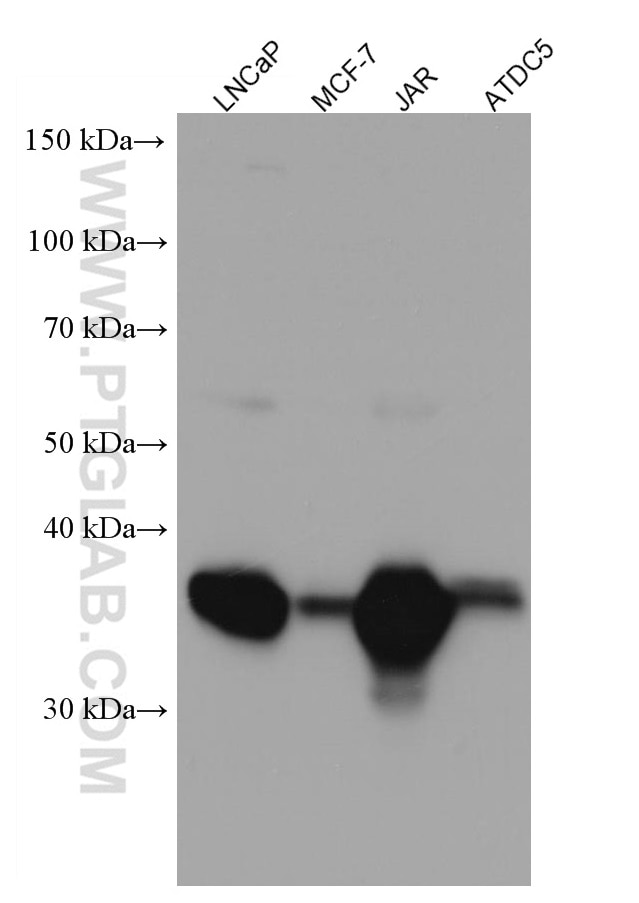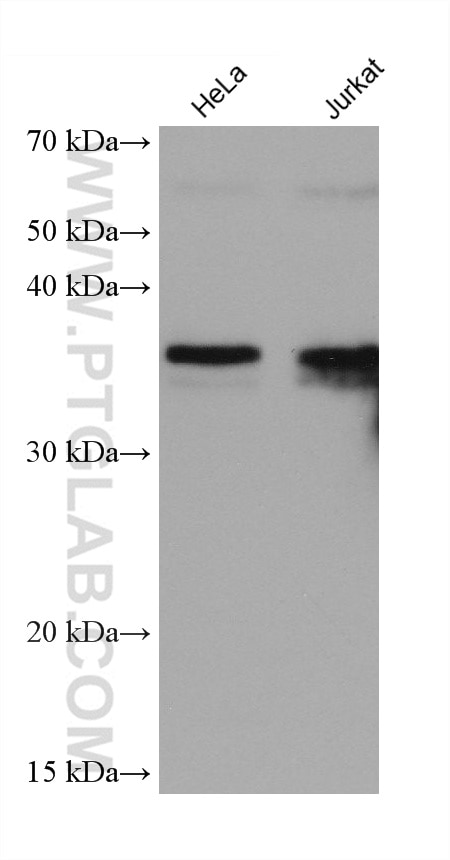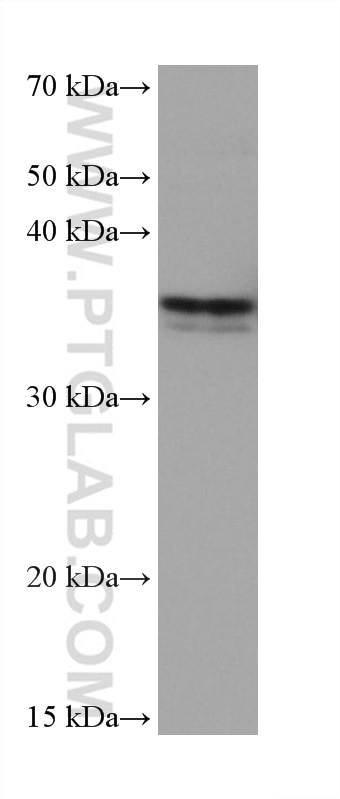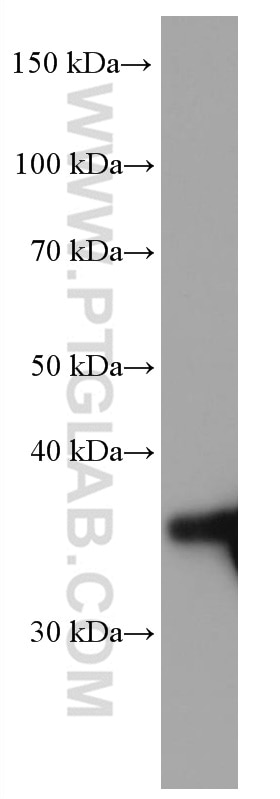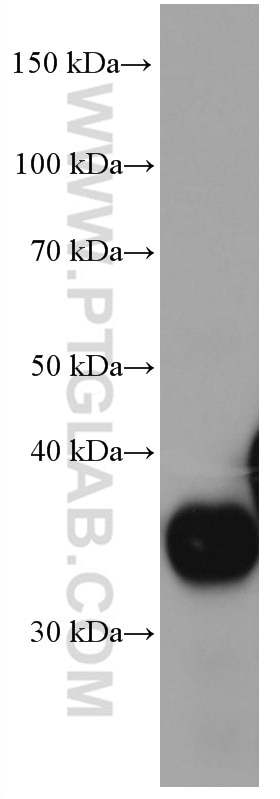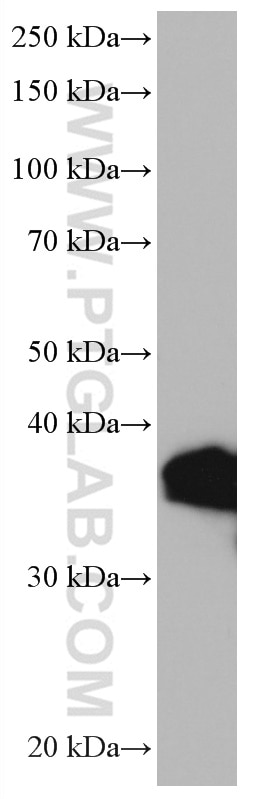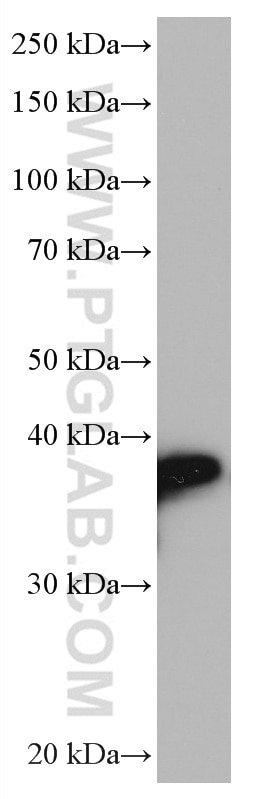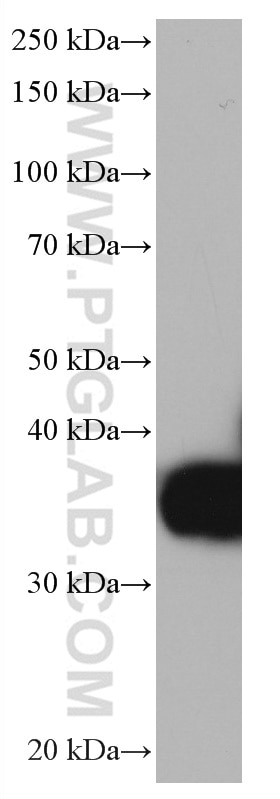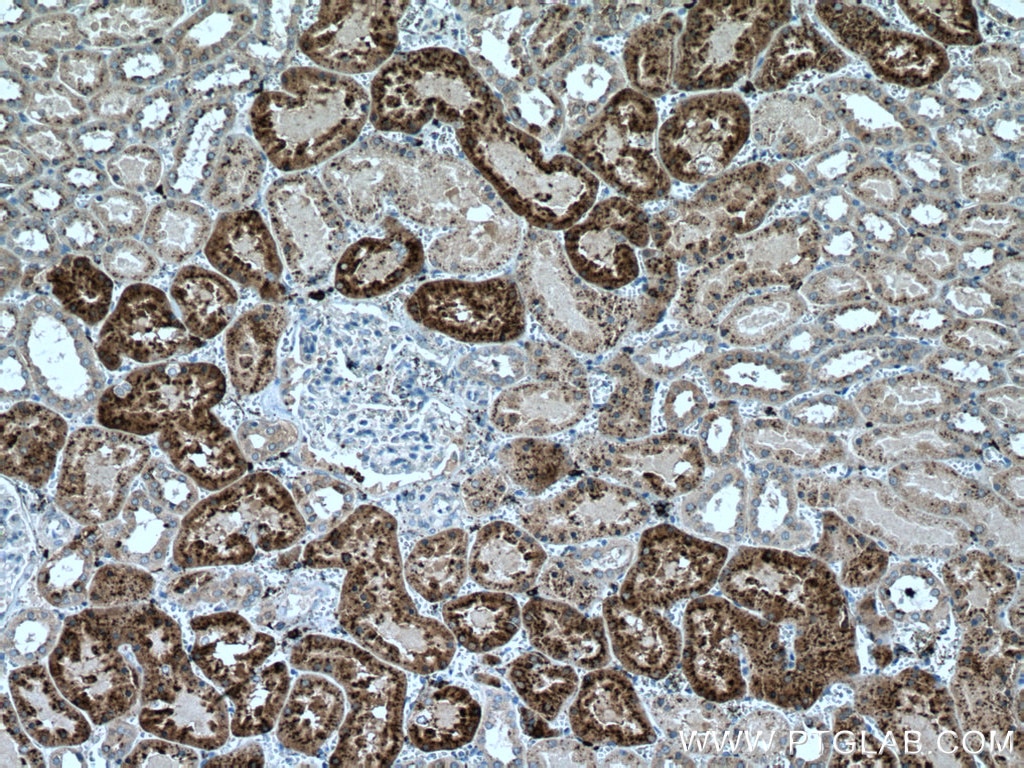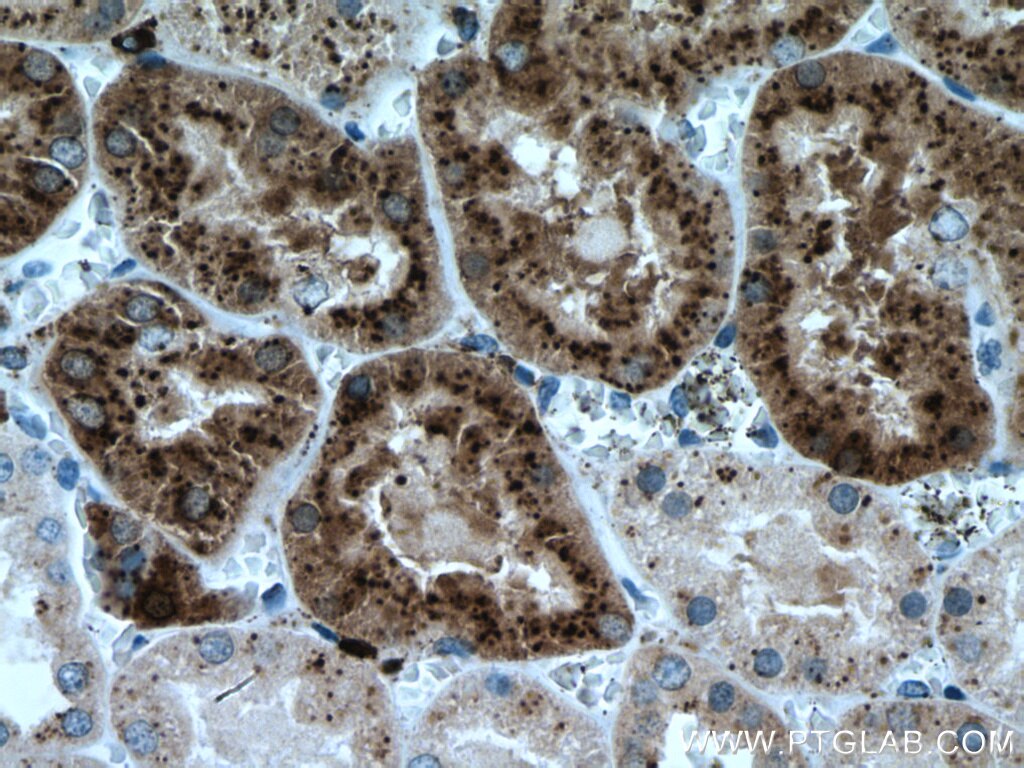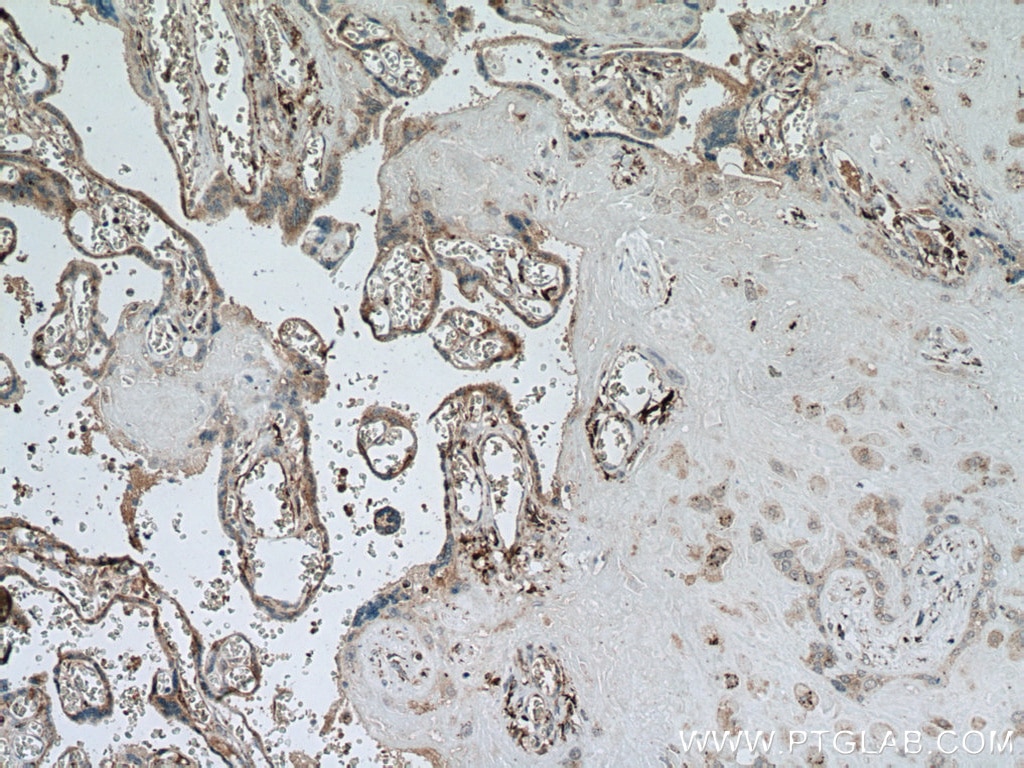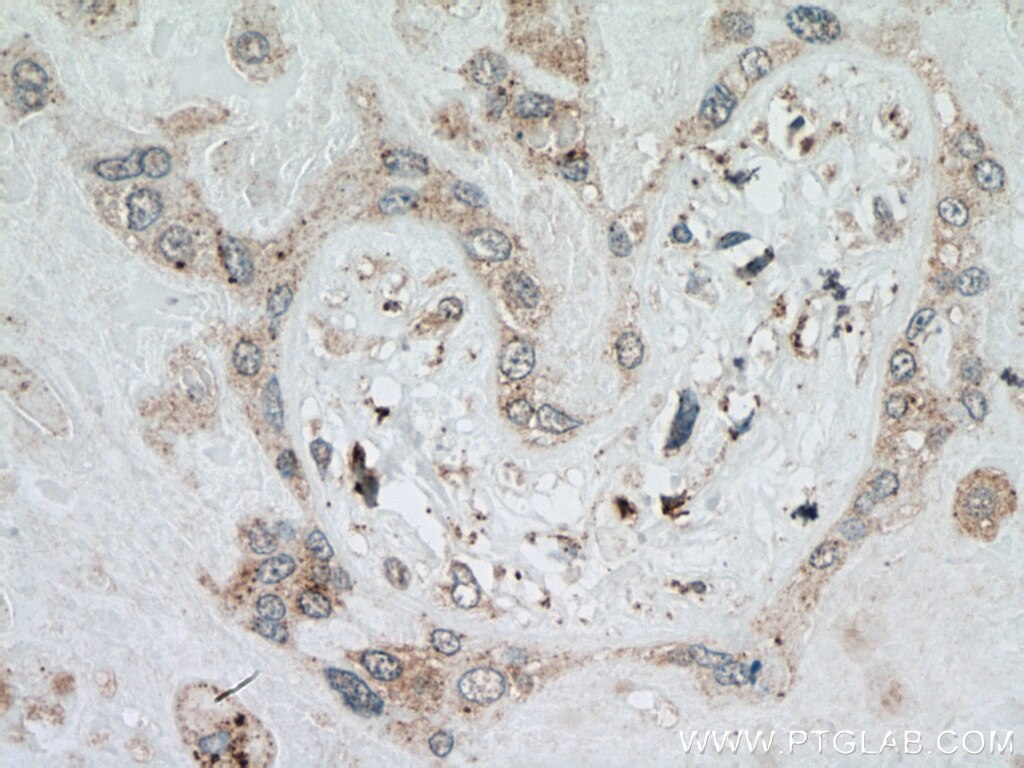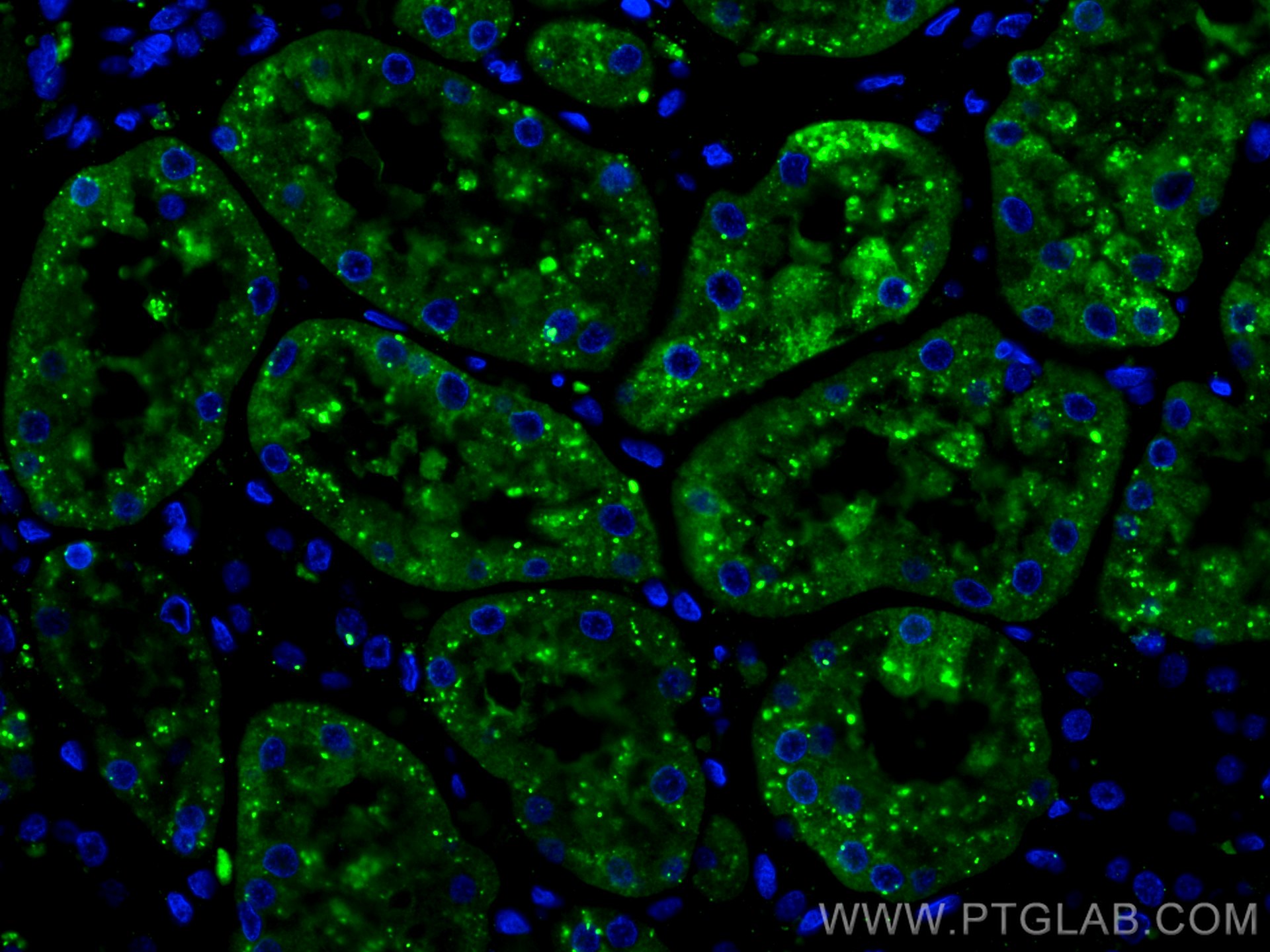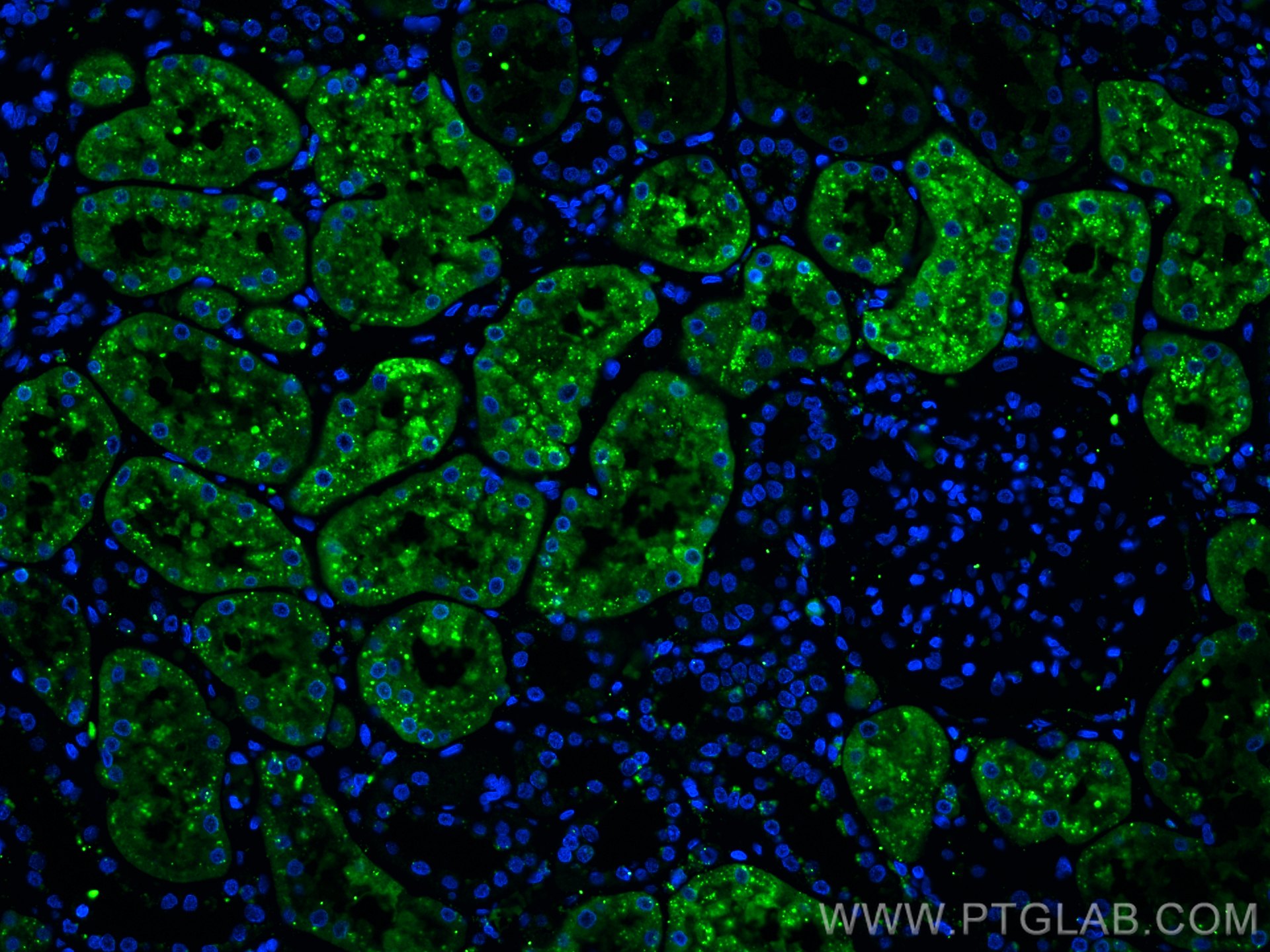LGMN Monoklonaler Antikörper
LGMN Monoklonal Antikörper für IF, IHC, WB, ELISA
Wirt / Isotyp
Maus / IgG1
Getestete Reaktivität
Hausschwein, human, Maus
Anwendung
WB, IHC, IF, ELISA
Konjugation
Unkonjugiert
CloneNo.
1F2B12
Kat-Nr. : 67017-1-Ig
Synonyme
Galerie der Validierungsdaten
Geprüfte Anwendungen
| Erfolgreiche Detektion in WB | SK-BR-3 cells, ATDC-5-Zellen, Hausschwein-Nierengewebe, HEK-293-Zellen, HeLa-Zellen, humanes Plazenta-Gewebe, JAR-Zellen, Jurkat-Zellen, LNCaP-Zellen, MCF-7-Zellen, NCCIT-Zellen |
| Erfolgreiche Detektion in IHC | humanes Nierengewebe, humanes Plazenta-Gewebe Hinweis: Antigendemaskierung mit TE-Puffer pH 9,0 empfohlen. (*) Wahlweise kann die Antigendemaskierung auch mit Citratpuffer pH 6,0 erfolgen. |
| Erfolgreiche Detektion in IF | humanes Nierengewebe |
Empfohlene Verdünnung
| Anwendung | Verdünnung |
|---|---|
| Western Blot (WB) | WB : 1:5000-1:50000 |
| Immunhistochemie (IHC) | IHC : 1:150-1:600 |
| Immunfluoreszenz (IF) | IF : 1:200-1:800 |
| It is recommended that this reagent should be titrated in each testing system to obtain optimal results. | |
| Sample-dependent, check data in validation data gallery | |
Veröffentlichte Anwendungen
| KD/KO | See 1 publications below |
| WB | See 4 publications below |
| IHC | See 2 publications below |
Produktinformation
67017-1-Ig bindet in WB, IHC, IF, ELISA LGMN und zeigt Reaktivität mit Hausschwein, human, Maus
| Getestete Reaktivität | Hausschwein, human, Maus |
| In Publikationen genannte Reaktivität | human, Maus |
| Wirt / Isotyp | Maus / IgG1 |
| Klonalität | Monoklonal |
| Typ | Antikörper |
| Immunogen | LGMN fusion protein Ag7218 |
| Vollständiger Name | legumain |
| Berechnetes Molekulargewicht | 49 kDa |
| Beobachtetes Molekulargewicht | 36 kDa |
| GenBank-Zugangsnummer | BC003061 |
| Gene symbol | LGMN |
| Gene ID (NCBI) | 5641 |
| Konjugation | Unkonjugiert |
| Form | Liquid |
| Reinigungsmethode | Protein-G-Reinigung |
| Lagerungspuffer | PBS mit 0.02% Natriumazid und 50% Glycerin pH 7.3. |
| Lagerungsbedingungen | Bei -20°C lagern. Nach dem Versand ein Jahr lang stabil Aliquotieren ist bei -20oC Lagerung nicht notwendig. 20ul Größen enthalten 0,1% BSA. |
Hintergrundinformationen
LGMN (Legumain), also known as asparaginyl endopeptidase or AEP, is a broadly expressed lysosomal cysteine endopeptidase that belongs to peptidase family C13 and specifcally hydrolyzes substrate asparaginyl bonds (PMID: 9065484). LGMN directly regulates diverse physiological and pathological processes by remodeling tissue-specific targets (PMID: 25205715, 21292981, 18820679). In addition, LGMN indirectly contributes to atherosclerotic plaque instability through activation of cathepsin L in the arterial ECM (PMID: 19671471, 18377911). LGMN is secreted as inactive prolegumain (56 kDa) and processed into enzymatically active 46 and 36 kDa forms, as well as a 17 kDa enzymatically inactive C-terminal fragment (PMID: 28162997, PMID: 19671471).
Protokolle
| Produktspezifische Protokolle | |
|---|---|
| WB protocol for LGMN antibody 67017-1-Ig | Protokoll herunterladen |
| IHC protocol for LGMN antibody 67017-1-Ig | Protokoll herunterladen |
| IF protocol for LGMN antibody 67017-1-Ig | Protokoll herunterladen |
| Standard-Protokolle | |
|---|---|
| Klicken Sie hier, um unsere Standardprotokolle anzuzeigen |
Publikationen
| Species | Application | Title |
|---|---|---|
J Control Release A "dual-guide" bioinspired drug delivery strategy of a macrophage-based carrier against postoperative triple-negative breast cancer recurrence. | ||
Int J Pharm Macrophage-mediated multi-mode drug release system for photothermal combined with anti-inflammatory therapy against postoperative recurrence of triple negative breast cancer. | ||
Int J Biol Sci Legumain Promotes Gastric Cancer Progression Through Tumor-associated Macrophages In vitro and In vivo. | ||
Exp Eye Res Legumain affects the PI3K/AKT tumor progression pathway in retinoblastoma
| ||
J Mol Neurosci The Heterogeneity of Tumour-Associated Macrophages Contributes to the Recurrence and Outcomes of Glioblastoma Patients |
